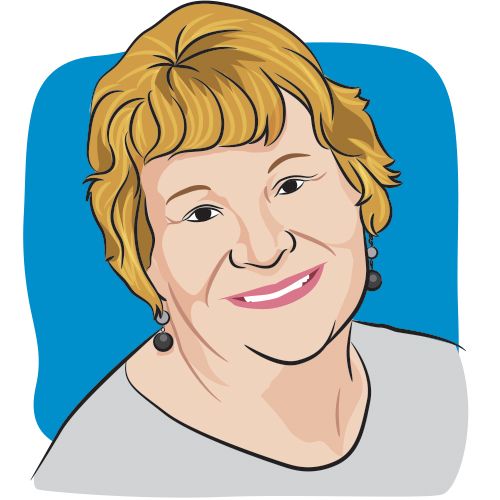Cancer and Fatigue Go Together
As a cancer survivor, I’m pleading for more research on cancer related fatigue.

Cancer-related fatigue is so common that between 80% and 100% of people with cancer report fatigue as a side effect, according to the American Cancer Society.
Read that again. Every cancer has different side effects depending on the type, which stage it is in, and the treatments given. But when 100% of the people report fatigue, we know this is an ongoing problem. Yet very little is written or explored. It feels like professionals just expect this, and because it is not fatal, they are not concerned about it. It is impossible to explain to people this amount of fatigue. This is not like losing a night's sleep or feeling bad. The cancer survivors' arms and legs often feel so heavy they cannot move without pushing themselves to the limit. Our thoughts become confused and our lives are disrupted. We cannot plan a day and activities because we do not know how we will feel.
I was startled recently when my internist asked me if I was tired and thought I had sleep apnea when I told her I needed coffee in the morning to get started. I have suffered from anemia for 14 years from a myelodysplastic syndrome, a rare blood cancer. I explained I was always tired from the cancer, but I am not sure she understood. Other specialists besides oncologists comprehend this fatigue and often oncologists are so used to hearing this they sort of blow us off. City of Hope states many oncologists are not trained to deal with fatigue.
However, some research has been done and there is a medical reason for this fatigue. A summary is that when cancer invades the bone marrow, the blood cells are affected. White blood cells help fight infection. Red blood cells contain hemoglobin and carry oxygen to organs and tissue throughout the body. This provides our energy and gets rid of waste. A reduction of the red blood cells causes anemia. Now I understand why with my MDS, my hemoglobin is monitored carefully and dictates whether I need treatments or not.
Other troubling symptoms can be life changing. Muscle pain makes it difficult to climb stairs or walk short distances. Often, we feel breathless after short activities like making your bed. Concentrating seems impossible. No wonder the American Cancer Society says fatigue can cause patients more distress than pain, nausea, vomiting or depression.
I also found it helpful to read about some other chronic diseases. One article “Disabled to Enabled” published by Multiple Sclerosis News Today lists six types of fatigue including social, emotional, physical, pain, mental and chronic illness. People with chronic illnesses can experience any or all of these at one time or another.
There are the usual suggestions to assist with fatigue and most of us have heard the list. Proper diet, breaking down tasks, counseling and reaching out for help when needed are all strategies to cope. Most of this information is not new to us. However, I feel it reassuring to know that the fatigue is not “all in my head” and that my constant pushing will not overcome this type of fatigue. I am pleased that at last there is (limited) research being done on fatigue and its effect on patients. The next step is to educate doctors and professionals like internists, family doctors, surgeons, medical doctors and nurses on the impact this can have on us. We also need to educate our family and friends. I find out that most people understand when I explain I need to sit and rest more than they do – but I need to tell them! I hope I continue to find new research and training on this often overlooked and important side effect – perhaps the most devastating of all!
For more news on cancer updates, research and education, don’t forget to subscribe to CURE®’s newsletters here.